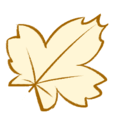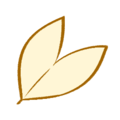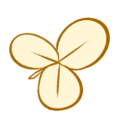Difference between revisions of "Leafy Traits"
From floramisa designs
(Tag: Visual edit) |
|||
| (One intermediate revision by the same user not shown) | |||
| Line 26: | Line 26: | ||
For ease of use, here are how the different combinations of trait and leaf rarity interact! | For ease of use, here are how the different combinations of trait and leaf rarity interact! | ||
{| class="wikitable" | {| class="wikitable" | ||
| − | ! style="background-color:#efece4;border-color:#dcd7c9;"|Original Trait Rarity | + | ! style="background-color:#efece4;border-color:#dcd7c9;" |Original Trait Rarity |
| − | ! style="background-color:#efece4;border-color:#dcd7c9;"|Leaf Shape Rarity | + | ! style="background-color:#efece4;border-color:#dcd7c9;" |Leaf Shape Rarity |
| − | ! style="background-color:#efece4;border-color:#dcd7c9;"|Resulting Rarity | + | ! style="background-color:#efece4;border-color:#dcd7c9;" |Resulting Rarity |
| + | |- | ||
| + | | rowspan="3" style="text-align:center;border-color:#dcd7c9;" |Common | ||
| + | (Leafy Antennae, Leafy Mane, Leafy Wings) | ||
| + | | style="text-align:center;border-color:#dcd7c9;" |Common | ||
| + | | style="text-align:center;border-color:#dcd7c9;" |Common | ||
|- | |- | ||
| − | |||
| − | |||
| style="text-align:center;border-color:#dcd7c9;" |Rare | | style="text-align:center;border-color:#dcd7c9;" |Rare | ||
| style="text-align:center;border-color:#dcd7c9;" |Rare | | style="text-align:center;border-color:#dcd7c9;" |Rare | ||
| Line 38: | Line 41: | ||
| style="text-align:center;border-color:#dcd7c9;" |Ultra Rare | | style="text-align:center;border-color:#dcd7c9;" |Ultra Rare | ||
|- | |- | ||
| − | | style="text-align:center;border-color:#dcd7c9;" | | + | | rowspan="3" style="text-align:center;border-color:#dcd7c9;" |Rare |
| − | | style="text-align:center;border-color:#dcd7c9;" | | + | (Leafy Stick, Leafy Tail, Leafy Tufts) |
| + | | style="text-align:center;border-color:#dcd7c9;" |Common | ||
| + | | style="text-align:center;border-color:#dcd7c9;" |Rare | ||
|- | |- | ||
| − | |||
| − | |||
| style="text-align:center;border-color:#dcd7c9;" |Rare | | style="text-align:center;border-color:#dcd7c9;" |Rare | ||
| style="text-align:center;border-color:#dcd7c9;" |Ultra Rare | | style="text-align:center;border-color:#dcd7c9;" |Ultra Rare | ||
| Line 48: | Line 51: | ||
| style="text-align:center;border-color:#dcd7c9;" |Ultra Rare | | style="text-align:center;border-color:#dcd7c9;" |Ultra Rare | ||
| style="text-align:center;border-color:#dcd7c9;" |Exclusive | | style="text-align:center;border-color:#dcd7c9;" |Exclusive | ||
| − | |||
| − | |||
| − | |||
|} | |} | ||
{{Mothcats Trait Navbox}} | {{Mothcats Trait Navbox}} | ||
[[Category:Mothcats]] | [[Category:Mothcats]] | ||
[[Category:Mothcat Traits]] | [[Category:Mothcat Traits]] | ||
Latest revision as of 22:13, 12 October 2018
Mothcats are able to have leafy antennae, manes, wings, and tails. The rarity of leafy traits depends on the shape of leaves used.
Common Leafy Traits
Leaves that are slightly lobed or not at all are considered common. These leaves are generally "whole" in shape but can have "teeth" along the edge, if desired. Examples include (but are not limited to):Rare Leafy Traits
Leaves that have exaggerated lobes or sections are considered rare. Examples include (but are not limited to):Ultra Rare Leafy Traits
Any leaves that branch off into groups or form in clusters are considered ultra rare. These types of leafy traits include vines, ferns, etc.
Examples include (but are not limited to):Rarity Stacking
For ease of use, here are how the different combinations of trait and leaf rarity interact!
| Original Trait Rarity | Leaf Shape Rarity | Resulting Rarity |
|---|---|---|
| Common
(Leafy Antennae, Leafy Mane, Leafy Wings) |
Common | Common |
| Rare | Rare | |
| Ultra Rare | Ultra Rare | |
| Rare
(Leafy Stick, Leafy Tail, Leafy Tufts) |
Common | Rare |
| Rare | Ultra Rare | |
| Ultra Rare | Exclusive |
Lua error: Internal error: The interpreter has terminated with signal "127".









